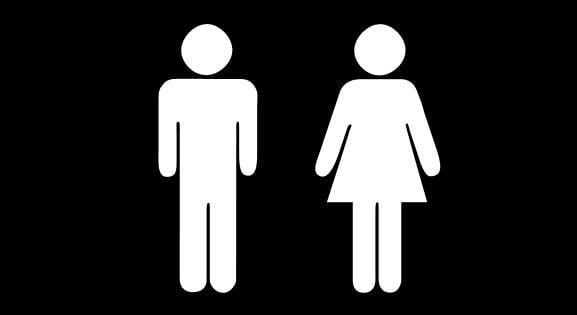Boys are better at physics because they learn about ‘projection’ while going to the toilet, researchers say https://t.co/CPi1b2RoHx
— Telegraph Education (@tele_education) September 15, 2017
I’ve been seeing the above article circulating around Twitter with the appropriate amount of snark lately, as a piece in Telegraph Education attributes the fact that boys tend to score higher in physics tests (specifically regarding projectile motion) to the fact that they are taught to pee and participate in “playful urination practices” like “Peeball.” Yes, that is a literal claim that having a penis makes you better at physics.
Now the piece on Telegraph is quite narrow, and not a perfect representation of the research it links to (though that is also not a perfect piece either). The article links to a article on the Times Education Supplement (TES), which is full of puns and begins with a description of the gender gap that’s pretty level-headed.
“Some of you will think we’re daft,” they write, “Our intentions, however, are honourable.” There are some good points made about the history of the field, the lack of role models for girls in physics, as well as curricula and greater forces of culture. However, in zooming into the notable gap in projectile questions specifically, the theory questions whether that might be because of participation in ball sports or…..peeing.
Yes, really. The article then goes into the culture of peeing (even citing Alexander Pope’s the Dunciad at one point), and argues that, “All this is experienced up to five times a day, so by 14, boys have had the opportunity to play with projectile motion around 10,000 times. And 14 is when many children meet formalised physics in the form of projectile motion and Newton’s equations of motion for the first time.”
Their solution, ultimately, is that curricula might think to put off projectile motion off to a later stage, therefore creating a more even structure. It’s bizarre, but the whole thing is clearly written with self-awareness and, honestly, good intentions. It doesn’t attempt to say that women or girls should stay out of physics, or that this gap is unfixable.
Still I have some questions.
- How are these individuals scoring so well on projectile motion when they can’t stop pissing on the floor in every public bathroom?
- How do squatting toilets fit into this equation?
- Seriously, have you been inside a boy’s restroom before?
The piece is mostly laughable (with a less laughable exclusion of transgender and non-binary folks). The Telegraph Education framing makes it sound like an Onion article or some weird argument from the 19th century to keep women out of universities. The TES piece is mostly misguided, but reading it, one might recognize a dangerous undertone which is the way we tend to frame gender discrimination in fields.
Mainly, the argument that men are more inclined or naturally better at a discipline rather than culturally encouraged and historically brought up is one I’m cautious about. How we frame a problem dictates how we address it. If we say that men are naturally better at science and math, instead of understanding that it’s a skill that needs to be worked at (a point brought up in our Hidden Figures talk) it changes how we try to fix our problems. The TES article hits on a fact, which is that despite lots of campaigns girls still seem to be underrepresented and underperforming (“For example, Wise was set up in the UK in 1984. In that time, the fraction of female students studying physics in the final two years of school has hovered around 20 per cent.”).
But changing a culture that has existed since the beginning of science-as-a-profession is going to take time. There are so many causes and influences from as young as six that contribute to these numbers. How does trying to ascribe the gender gap to biology make a young girl feel about their capabilities? What does it say about where our priorities lie in trying to change this gender gap? I was told that girls are inherently worse at science and math and I thought it was true past high school. Even when I was doing great in advanced calculus and being curious about science, that stuck in my mind and still does.
We need to be aware that gender discrimination in science is a thing that exists, and the discrepancy/under-performance we can observe from youth to even adulthood is the result of a culture that has historically excluded women, used pseudo-science to justify that exclusion, and then pushes them out with misogyny. That is where our energy needs to be direction, not at Peeball.
Want more stories like this? Become a subscriber and support the site!
—The Mary Sue has a strict comment policy that forbids, but is not limited to, personal insults toward anyone, hate speech, and trolling.—









Published: Sep 18, 2017 05:20 pm